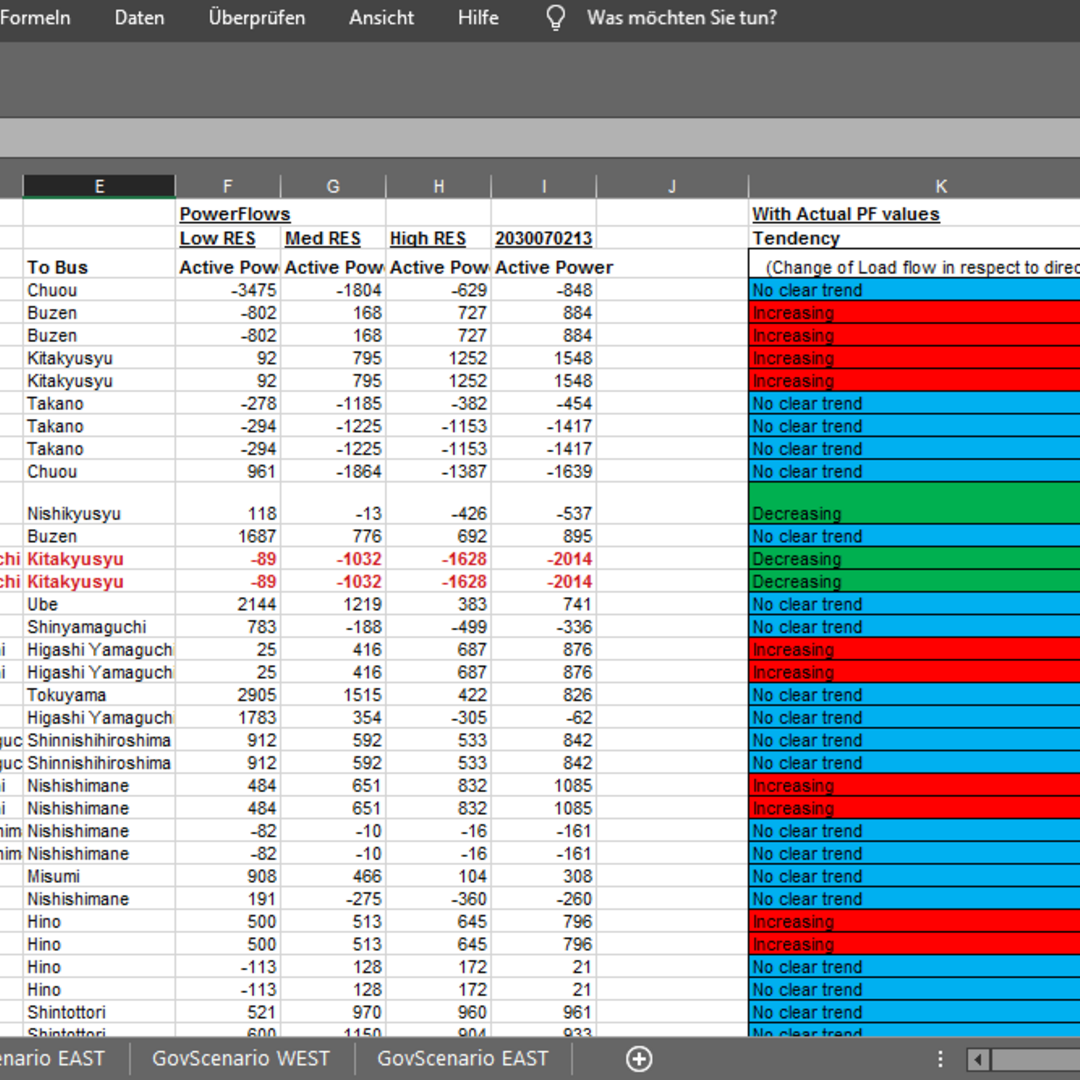-
The Japanese power system can accommodate a larger proportion of renewables (RES) than is currently provided for in the government’s 2030 targets, while still maintaining grid stability.
An annual share of at least 33% RES (22% variable renewables – VRES) can easily be integrated, while still maintaining grid stability within a tolerable range. A higher renewable share of 40% (30% VRES) could also be achieved with very low curtailment level.
-
There already exist a number of technical measures to improve grid stability in situations where a high proportion of variable renewables could place a strain on grid operations.
Indeed, VRES can contribute to maintaining grid stability by providing fast frequency response (FFR). On conservative assumptions, this study shows that such FFR services would enable the existing Japanese transmission grid to incorporate instantaneous VRES penetration levels of up to 60% in eastern Japan and around 70% in western Japan, while still maintaining frequency stability. These assessments confirm the trends observed in 2018 in regions such as Kyushu or Shikoku, where hourly VRES penetration satisfied more than 80% of demand (corresponding to more than 55% of all power generation). By 2030, these high regional infeed levels could become the norm for the Japanese system as a whole. Furthermore, implementing additional technical measures would allow even higher penetration levels to be reached.
-
Integrated grid and resource planning can help mitigate the impact of wind and solar PV
deployment on intraregional and interregional load flows.
Increasing the proportion of VRES in the mix is expected to reduce power line loading in some regions and increase it in other parts of the system. The impact of VRES distribution on the grid must therefore be systematically taken into account in future grid development plans, in order to avoid creating line-loading hotspots.
-
Non-discriminatory market regulations, enhanced transparency, and state-of-the-art operational and planning practices facilitate the integration of a higher proportion of variable renewables.
In particular, renewables should be incorporated into ancillary service provision, since they can contribute to frequency stability, balancing, and voltage control in tandem with other technologies (such as demand side response, conventional generation, and storage).
Integrating renewables into the Japanese power grid by 2030 (Summary)
A frequency stability and load flow analysis of the Japanese system in response to high renewables penetration levels

Preface
As the cost of wind and solar power generation has drastically fallen, these technologies have come to make a major contribution to the decarbonisation of power systems. In Japan, solar photovoltaic uptake has risen rapidly over the last five years, making the country one of the most dynamic photovoltaic markets outside China. While the proportion of variable renewables in the Japanese system is increasing, however, it remains rather low, at around 7%.
Concerns over whether renewables can be efficiently integrated into Japan’s power grids without endangering grid stability have raised the spectre of a renewables slowdown in the country. International experience has shown, however, that a number of technical measures that are not yet widespread in Japan can be safely implemented to improve grid stability. Unfortunately, there are very few studies in the public domain on these aspects of Japan’s power system.
In this study, Japan’s Renewable Energy Institute (REI) and Agora Energiewende attempt to partially fill this lacuna. As well as providing new insights into grid stability in Japan, the study also promotes data transparency. We are firmly convinced that third party analysis on the basis of transparent data can contribute to a more robust discussion and ultimately raise societal awareness of the importance of the energy transition.




